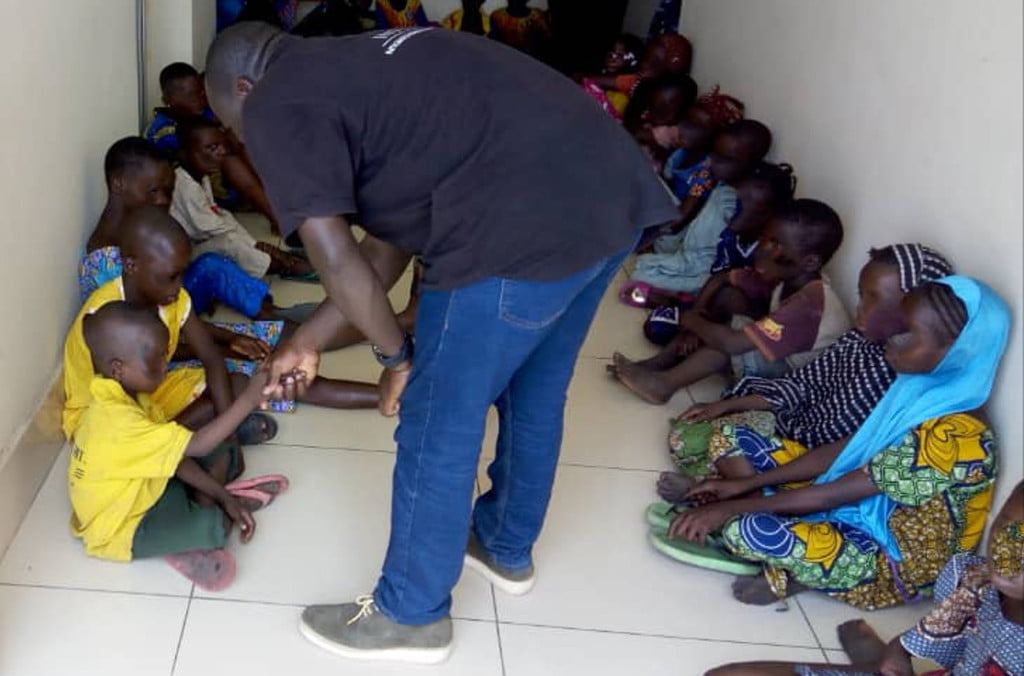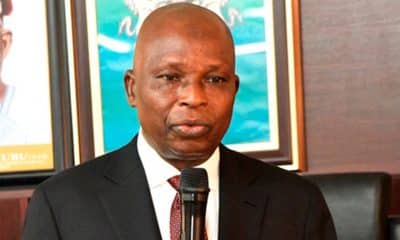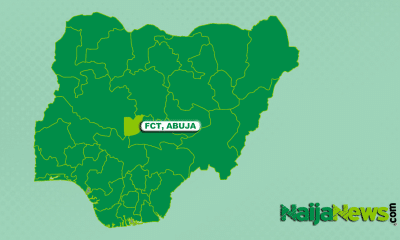Nigeria News
Human Trafficking Has Gone Digital In Nigeria – FG Admits

The federal government has voiced its concerns regarding the growing trend of human traffickers in Nigeria utilizing digital platforms to attract and exploit victims.
Naija News reports that the Attorney-General of the Federation and Minister of Justice, Lateef Fagbemi (SAN), highlighted this alarming issue on Wednesday at the 27th National Stakeholders’ Consultative Forum on Human Trafficking held in Abuja.
Fagbemi characterized the situation as a rapidly evolving and transnational threat that necessitates immediate action.
He emphasized that Nigeria must react with comparable speed and innovation to address this challenge.
Fagbemi pointed out that human trafficking ranks as the third most lucrative criminal activity worldwide, following drug and arms trafficking.
He urged for enhanced legal, institutional, and technological measures to combat this issue.
Additionally, he noted that the revision of the National Action Plan presents a crucial opportunity to bolster Nigeria’s efforts against human trafficking.
“Trafficking has gone digital. We must act fast or risk being outpaced by criminals who now use sophisticated online tools to recruit, control, and exploit victims.
“Human trafficking remains one of the world’s most profitable crimes. We must adapt, especially as traffickers now exploit digital tools to operate.
“Let me assure you that we will continue to work closely with NAPTIP and other partners to ensure that the legal and institutional frameworks for tackling trafficking remain dynamic, responsive, and effective.
“The fight against human trafficking is not just about statistics or targets it is about human dignity, freedom, justice, and national integrity,” the attorney general stated.
Fagbemi urged the commissioners for Women Affairs in all 36 states of the federation to promote policies aimed at combating human trafficking.
He also encouraged them to support the allocation of budgets and initiatives that would tackle trafficking and exploitation, either directly or indirectly.
Additionally, he proposed the establishment of a specific budget line for state task forces focused on human trafficking to formalize their operations within the states.
Over 7,000 Trafficked Victims Rescued In 2 years – NAPTIP Boss, Bello
The Director-General of the National Agency for the Prohibition of Trafficking in Persons (NAPTIP), Binta Adamu Bello, announced that over 7,000 victims of trafficking were rescued and rehabilitated from 2022 to 2024.
During this period, the NAPTIP leader reported that 205 convictions were achieved and more than 208 Anti-Trafficking in Persons (Anti-TIP) and Violence Against Persons Prohibition (VAPP) vanguards were established in schools across the country.
She highlighted that, in partnership with the United Nations Office on Drugs and Crime (UNODC) and the Swiss government, NAPTIP has created digital tools aimed at enhancing data collection and reporting related to trafficking incidents.
Additional achievements mentioned include the reactivation of the Gender-Based Violence (GBV) data platform, the establishment of a digital center in Katsina with assistance from the National Information Technology Development Agency (NITDA), the renovation of its Lagos Zonal Command, and various donor-funded initiatives from the European Union, the Netherlands, and ECOWAS.
She emphasized that NAPTIP is dedicated to maintaining the highest levels of professionalism, transparency, and integrity in its operations.
“Our fight has moved online, and so has our response,” she said.
She also stated that over 160 data officers had been trained nationwide and new digital tools introduced for case tracking and coordination.
Bello stressed the need to continue collective efforts to combat human trafficking, saying it is a grave issue that must be minimised or eliminated.
“As a society, we have a choice: to fight together or to become enablers through our silence,” the NAPTIP DG warned.
Human Trafficking A Threat To National Security – UNODC, Switzerland
Meanwhile, the Country Representative of the United Nations Office on Drugs and Crime (UNODC), Cheikh Touré, praised Nigeria’s initiatives, emphasizing that “policy is ineffective without local action.”
Touré remarked, “Policy means nothing without action. Human trafficking undermines dignity, hampers development, and poses a security threat.”
He acknowledged Nigeria’s commitment to combating human trafficking and urged for enhanced coordination, improved data systems, and strategies led by survivors.
Touré highlighted the importance of collaboration among all stakeholders in the battle against human trafficking.
He noted that the forum serves as a fundamental element of Nigeria’s national response, offering a crucial platform for fostering a shared vision among federal and state entities.
One In Every Four Trafficked Persons In Africa Is Nigerian
In June of the previous year, a former United Nations Special Rapporteur on Trafficking in Persons, Professor Joy Ezeilo, expressed concerns over the rate of trafficking in Nigeria.
Ezeilo noted that one in every four trafficked persons in Africa is identified as Nigerian and urged the government to create an early warning system to combat human trafficking.
Ezeilo, who serves as the Executive Director of the Women Aid Collective and is a Senior Advocate of Nigeria (SAN), made this appeal in response to a viral video depicting young Nigerian girls allegedly trafficked for forced prostitution in neighboring Ghana.
She emphasized that establishing such a system would help identify instances when girls go missing from school, do not enroll, or are living outside of family care.
Additionally, she called on government officials at all levels to take immediate action to address the underlying causes of this issue in order to mitigate the vulnerabilities faced by young girls.
“In Africa, one in every four trafficked persons is Nigerian, making the country the most affected by trafficking. This issue remains prevalent in all 36 states and the Federal Capital Territory, Abuja. Edo State was once considered the epicentre of trafficking in persons, but that is no longer the case.
“Nigerian women, children, and men are vulnerable to transnational or cross-border human trafficking, primarily to Europe and Africa, as well as to other parts of the world, including Asia and the Americas. Human trafficking knows no borders.
“Watching the trending video of young Nigerian girls trafficked for forced prostitution to neighbouring Ghana is a stark reminder of the pervasive and cross-border issue of human trafficking or trafficking in persons,” she had stated.












